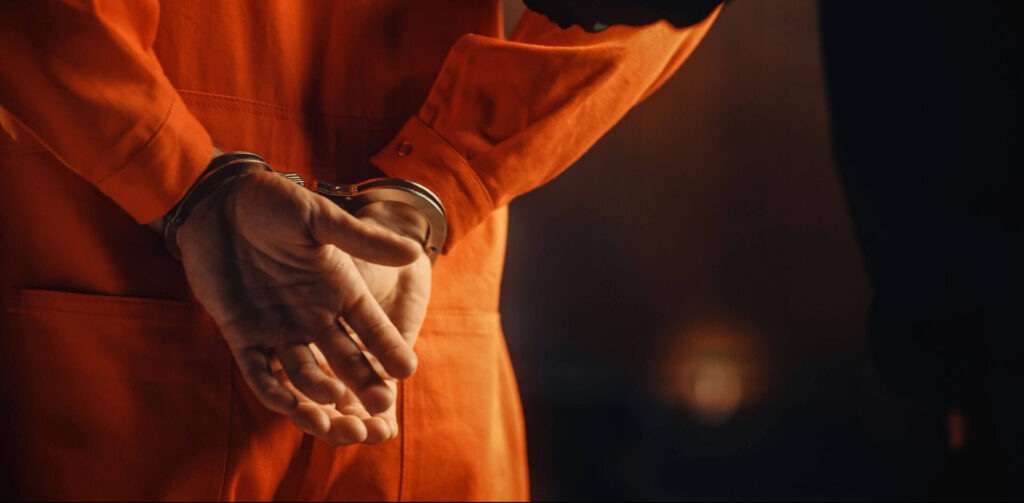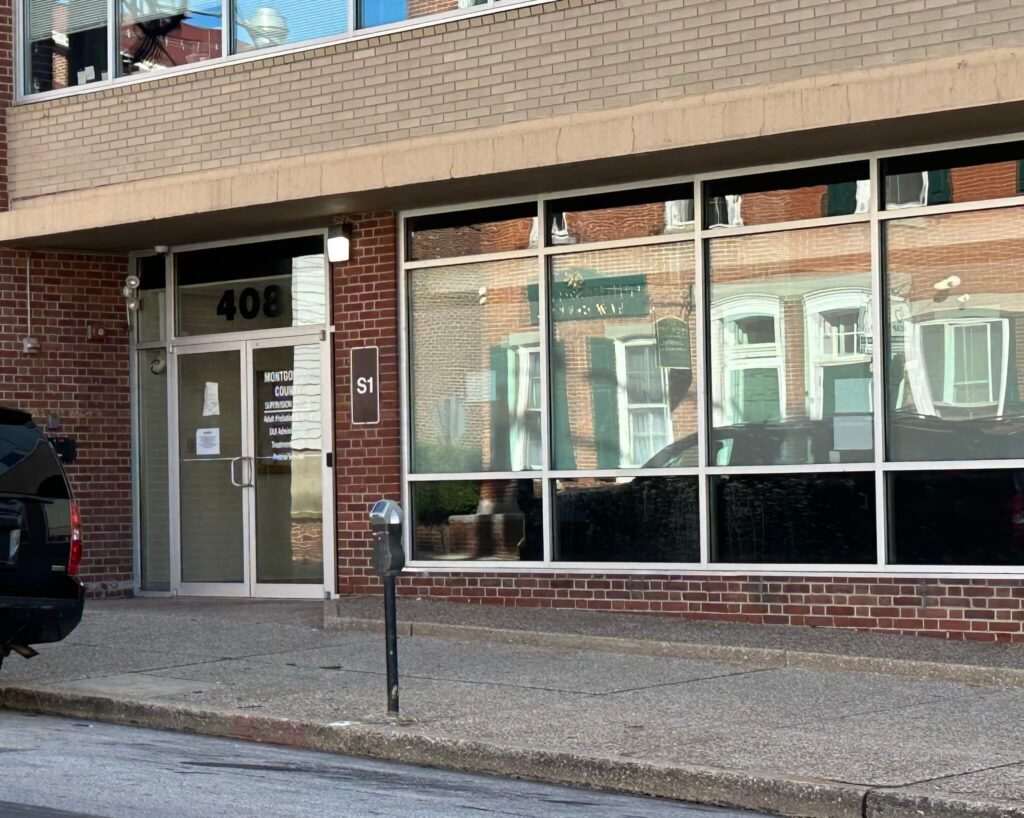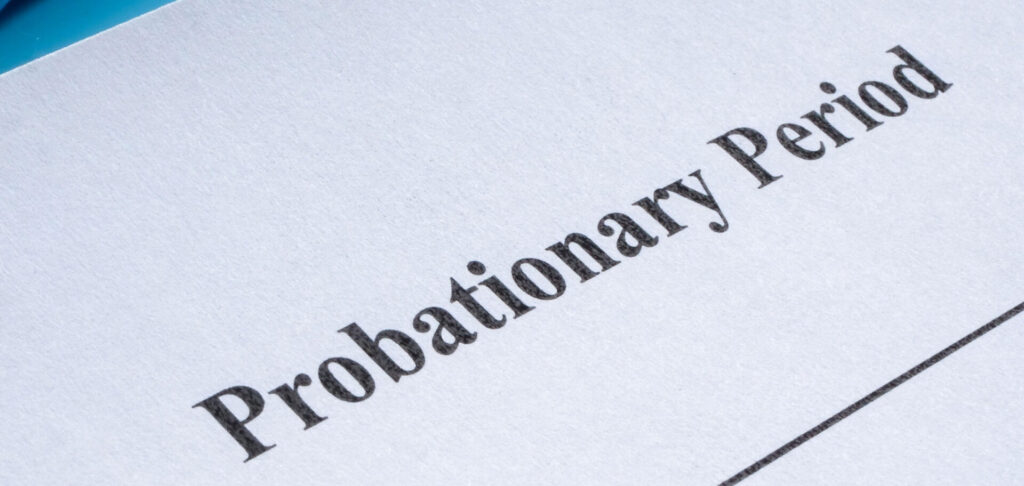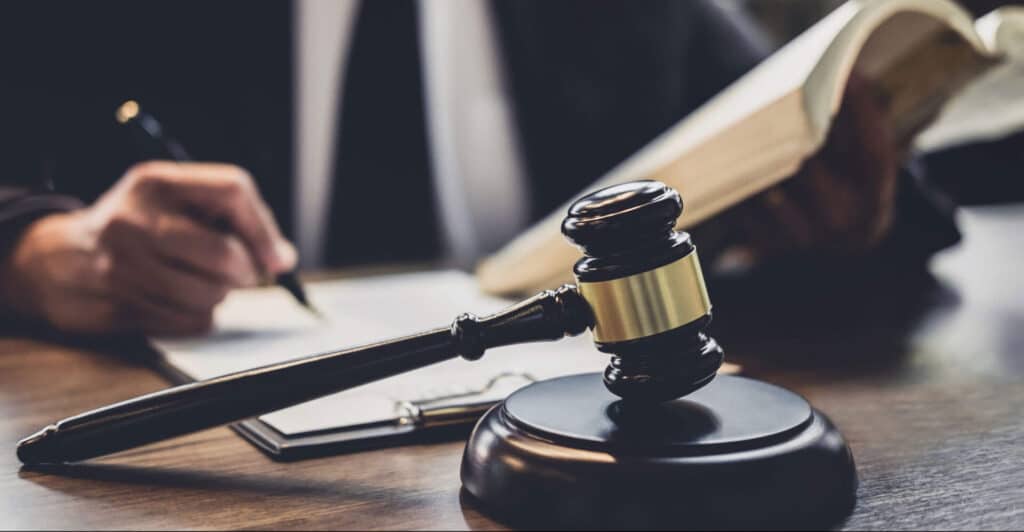
Often, individuals violate the terms of their probation or parole without realizing it. You may fail to appear in court at a scheduled time, inadvertently miss a scheduled meeting with your probation officer, or fail to notify the court of an address change. Unfortunately, violating your probation or parole can lead to jail time and other serious consequences. As a result, you need an experienced probation violation defense lawyer on your side to build an effective probation and parole violation defense.
Probation Violation Attorney
Are you searching for probation violation lawyers near me? If so, I am one of the most experienced probation violation lawyers in Bucks County, Chester County, Montgomery County, Delaware County, and the surrounding Pennsylvania Counties.
Contact me at (215) 752-5282 for a free initial consultation, or fill out the confidential contact form for an immediate response. Appointments are available after business hours and on weekends.
Probation Violation PA
What is a Technical Violation of Probation?
Probation officers classify a violation as either a technical violation or a direct violation. To highlight the difference, the probation department will charge a person with a technical offense when they violate one or more of their probation or parole conditions.
Although serious, technical violations of probation do not result from the police charging the Defendant with a criminal offense. In addition, a person who commits a technical violation of their probation or parole will face less severe punishment than those committing a direct violation.
What is a Direct Violation of Probation or Parole?
In most cases, an individual commits a direct violation of probation or parole when the police charge them with a new crime or when a judge convicts them of a criminal offense.
The probation and parole officers will almost always recommend a jail sentence for Defendant’s who commit a direct violation of their supervision.
Therefore, it is crucial to hire a skilled violation of probation lawyer to help you avoid incarceration or reduce the recommended punishment.
Probation Violation Consequences

Montgomery County Adult Probation Office
Directions to Montgomery County Adult Probation Office
Most people do not realize the penalties for breaking probation. Both technical and direct violations can result in the court revoking your probation or parole and a return to jail.
The judge assigned to your probation or parole violation hearing is sometimes called your back judge. Furthermore, the back judge is usually the sentencing judge on the original charges.
Individuals subject to parole revocation may be required to serve the balance of their sentence in prison. However, individuals subject to revocation of their probation can be re-sentenced to jail, have their probation extended, or both. This type of disposition is considered a split sentence.
Generally, a person on probation or parole who commits a technical or substantive violation must notify their probation officer within 72 hours. Above all, a person needs to understand what happens if you break probation.
I can provide emergency legal advice if your probation officer has advised you to turn yourself in for a probation or parole violation.
How to Violate Probation
An individual can break the PA probation rules in many ways, even without planning to do so.
The following are some of the most common ways Pennsylvania probation and parole violations may occur:
- Failing to appear in court at a scheduled date and time
- Failing to complete court-ordered treatment programs
- Testing positive for illegal drugs
- Failing to report to your probation officer: absconding probation
- Neglecting to pay court costs, fines, and restitution
- Changing your address without approval from the probation department
- Possessing firearms, ammunition, or other weapons
- The police charge you with a crime
Other Ways to Violate Probation
- Failing to complete court-ordered community service
- Leaving Pennsylvania without permission from your probation officer
- Failing to maintain employment
- Consuming, possessing, or selling a controlled substance
- Consuming alcoholic beverages
- Receiving new criminal charges
Probation Violation Consequences
A judge may impose different punishments on individuals guilty of violating probation or parole. The court will base the probation or parole violation sentence on the Pennsylvania Sentencing Guidelines, the seriousness of the violation, and your positive or negative probation history.
Some of the penalties a judge could impose include the following:
- Revocation of probation and re-sentencing to the original probation sentence
- Revocation of parole and re-sentencing to additional jail time
- Court-ordered drug and alcohol treatment (inpatient or out-patient)
- Court-mandated mental health treatment
- Other conditions to your probation or parole
- Community service
- The requirement to maintain employment
As a highly qualified probation violation lawyer, I can help you avoid the most severe penalties if the probation department schedules you for a probation or parole violation hearing.
Probation Violation 1st Offense PA
Most people do not understand what happens if you violate probation for the first time. In almost all cases, a judge will not send an offender with a first offense probation violation to jail.
Most first-offense probation violations involve repeated failed drug tests and absconding probation supervision. Other reasons people will get a first offense violation of probation include failing to participate in drug or psychological treatment or an arrest for a minor offense.
However, the probation judge will likely impose a prison sentence on offenders charged with a serious felony.
Most first-time probation violators remain good candidates for probation supervision despite the initial probation infraction. I can help develop the most persuasive mitigating evidence and make the strongest argument against a jail sentence at your violation hearing.
PA Probation Detainer Hearing
The probation officer will often request that you be held in custody if they determine that probable cause exists to believe that you have violated the conditions of your probation or parole. This determination is often made at an initial proceeding known as a preliminary hearing or more formally referred to as a Gagnon I Hearing.
Suppose probable cause is established by the probation and parole department at the hearing? Sometimes, the judge will order that the offender be held in custody until the probation or parole violation hearing is held.
In other situations, the court will order that the offender be released until the Gagnon II hearing is held.
How Do I Remove a Probation or Parole Detainer?
Suppose you are held in custody after a Gagnon I Hearing. In that case, I can thoroughly investigate the facts and circumstances surrounding the alleged probation or parole violation. In some instances, I will petition the court requesting that the probation or parole detainer be lifted.
In most counties, the court will schedule a hearing to determine whether the probation or parole detainer should be lifted. At the time of the hearing, I can present mitigating evidence and legal argument in favor of your release on bail pending the resolution of the probation or parole violation hearing.
What Happens if you Violate Probation?
The first hearing is a Gagnon 1 hearing. At this stage, the probation department must convince the judge that there is probable cause to believe you violated the conditions of your probationary sentence.
The second proceeding is called a Gagnon 2 hearing. The prosecutor must prove by a preponderance of the evidence that the offender violated the conditions of their probation.
The preponderance of evidence standard is a low burden of proof. It only requires that the prosecutor prove that it is more likely than not that the offender violated their probation.
Probation Violation Hearing
At a probation hearing, also called a VOP hearing, the district attorney will allege that the probationer has violated the probation rules or has committed a new crime.
At the probation violation hearing, a Common Pleas court judge decides whether the prosecutor has met its burden of proof by a preponderance of the evidence that the probationer has violated probation.
If the prosecutor satisfies this burden, the judge will decide whether to revoke the Defendant’s probation. Finally, the court will determine the punishment for the probation violation.
Notably, the Defendant has the right to the assistance of a lawyer and the right to present evidence to rebut the district attorney’s allegations.
How to Beat a Probation Violation
During the violation hearing, often called a Gagnon II hearing, the district attorney must prove by a preponderance of the evidence that you violated your probation or parole.
In some cases, I will challenge the evidence presented by the probation or parole officer through the aggressive cross-examination of Commonwealth witnesses and the introduction of exculpatory and mitigating evidence on behalf of the alleged offender.
In other cases, I have established to the court that the VOP charge is minor and does not warrant revocation of probation or parole or further penalties.
It is essential to provide the court with all available mitigating information to convince the judge to allow you to remain in the community. Persuasive mitigating evidence can include:
- Proof of successful drug and alcohol treatment
- Full participation in psychological counsel
- Undue hardship of incarceration on the offender’s family
- Proof of steady employment by the offender
- Demonstrating that continued probation will assist in the offender’s rehabilitation
Some or all of these mitigating factors can convince the judge to release you from jail or allow you to remain on probation or parole.
Can an Attorney Negotiate a Probation Violation?
Yes, especially in cases where the probation department can prove that the offender violated probation or parole. The Defendant’s attorney and the probation officer resolve most probation and parole violations through negotiated agreements.
In most cases, I can negotiate with the probation officer for a favorable probation violation agreement instead of conducting a contested POV hearing.
During the negotiation process, I provide the probation officer with mitigating information about the Defendant’s background. In many cases, we can agree to continued probation, intermediate punishment, or a significantly reduced jail sentence.
Can a Violation of Probation Lawyer Help You?
Yes. I have spent over a decade working with county and state probation and parole departments, county prosecutors, and the courts. In addition, I have extensive experience in successfully resolving probation or parole violation matters through direct negotiations with local probation department officers and county prosecutors.
I will review the facts of your case to determine the most effective legal strategy to resolve your probation or parole violation charge.
Can You Get Off Probation Early?
Yes, in some cases. Early probation termination generally occurs administratively or through filing a motion for termination of probation. Furthermore, administrative termination of probation usually occurs if, at the time of sentencing, the judge orders that the probation may end before the conclusion of the probationary sentence.
To be eligible for early administrative termination of probation, the judge will usually require that the Defendant avoid any violations and the offender pays all court costs and fines in full.
The probation department will close the case if the Defendant meets all the sentence conditions. Also, the probation department or the probation judge will terminate administrative probation, often without a court hearing.
What is a Petition for Early Termination of Probation?
A lawyer can file a Motion to Terminate Probation when a Defendant is within one to two years of the completion of their probation sentence. In most counties, the court will schedule a hearing on the motion within three to four months of the filing date.
Notably, the probation judge will be more likely to grant early probation termination under the following circumstances:
- You have paid off all of your court costs and fines
- You have a positive supervision history
- Your probation officer does not object to closing out your probation case
- The continued probation supervision adversely affects your employment, travel, or financial situation
As an experienced lawyer for early termination of probation, I can help you get off probation early by filing a Petition to Terminate Supervision. Contact me for a free consultation to discuss ways to end your probation or parole supervision.
How Long Does Early Termination of Probation Take?
It depends. The probation officer can administratively close your probation or parole case without a court order. If that occurs, the probation and parole department will close your supervision when you have served at least half of your sentence, and your case is eligible for early closure.
If a judge grants early termination of probation after a probation termination hearing, the case is closed on the hearing date.
Lawyer for Probation Violation
Have you been charged with a probation or parole violation in Bucks County, Montgomery County, Chester County, Delaware County, or the nearby Pennsylvania Counties? Your first question is: How do I find an experienced probation violation lawyer near me?
If so, contact me to fight the charges, negotiate the sentence, or help you avoid jail. Phone lines are open 24 hours a day at (215) 752-5282. Call today for a free initial consultation, or fill out the confidential contact form for an immediate response.







